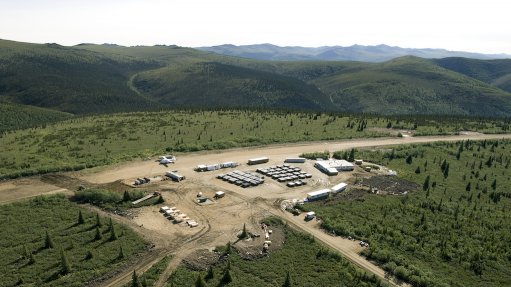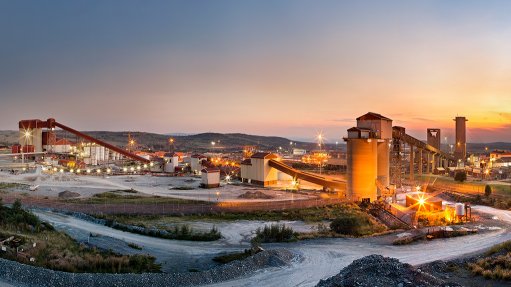S Africa must navigate pros, cons of energy transition


ANDREW LANE "The energy transition will cultivate a successful and competitive industry, which will have a ripple effect into the broader economy” Andrew Lane
The green energy revolution in South Africa presents potential positive and negative consequences for the economy, says professional services firm Deloitte Energy, Resources and Industrials leader Andrew Lane.
This revolution involves a shift away from fossil fuel-based energy sources, including an initial transition from coal to gas.
Lane notes that a common debate about the applicability of gas as a transition fuel is happening because gas is nonrenewable and still adds to carbon dioxide (CO2) emissions, albeit at a lower rate than coal.
He suggests that using gas may be a stepping stone to the final fully renewable transition, noting that projects such as the significant finds in Mozambique, and the Brulpadda and Luiperd projects in the Outeniqua basin offshore South Africa, could afford companies the option of using gas as a “transition” fuel on the way to achieving net-zero emissions.
Mining majors, such as Anglo American and South 32, have divested from thermal coal assets to reduce their carbon footprint and are introducing green energy by leveraging renewable-energy technologies.
These technologies, such as photovoltaic solar, wind energy and biomass, are cheaper alternatives to generate electricity, compared with the coal-based power generated by State-owned utility Eskom.
Lane adds that, as a result, the energy transition will cultivate a much more successful and competitive industry, which will have a ripple effect into the broader economy.
This potential success is attributable to – unlike with Eskom’s grid power – renewable energy technologies’ offering reliable supply, especially when combined with storage technologies, CO2 emissions reduction and lower energy costs, all of which translates into better productivity and improved profitability.
He notes that, while the green energy revolution is presented as a positive strategy for the environment and the economy, it also contains foreseeable consequences, which mainly affect people employed in the coal industry.
There are 19 coalfields in South Africa, which are largely located in the provinces of Mpumalanga, Limpopo, KwaZulu-Natal and the Free State. These coalfields sustain many livelihoods, Lane comments.
As the mining industry continues to modernise during the green energy revolution, the nature of work will inevitably change. Mining companies will need to reskill their staff, as the skills required will differ from the skills currently required.
“Many individuals in specific locations will be disadvantaged by this energy transition, as replanning, readjusting and reinventing will have to become part of their daily routines,” says Lane.
Further, there is not much mining-related investment into South Africa at the moment, particularly in exploration. Mining is a “long-term, high capital” industry, and South Africa is not attracting these investments, which are crucial to enabling the viability of this crucial sector.
“South Africa cannot grow without capital investment, yet regulatory uncertainty, bureaucracy and poor infrastructure are keeping investors away and discouraging the construction of new mines,” he notes, adding that this eliminates any room for job creation.
However, Lane affirms that it is not necessarily a given that renewable projects will result in a net reduction in jobs: “There is a large expectation that new technologies and new businesses will not only create jobs but, hopefully, secure jobs.”
Mining companies are considering livelihoods as an imperative factor while transitioning and are actively trying to create jobs outside the mining value chain, as all mines eventually cease to exist.
He adds, moreover, that if South Africa joins the battery value chain and the hydrogen value chain, this will spur job creation.
Meanwhile, Lane suggests that creating a social dividend for communities from current operations is as important as ensuring a future beyond mining.
Listed mining companies, such as Kumba Iron Ore, Northam Platinum and Gold Fields, are under pressure to achieve net-zero emissions, owing to their need to attract global investors.
“The carbon neutral imperative has come to roost – particularly for the global majors,” he adds.
However, he enthuses that the emerging importance of minerals of the future, which range from base metals such as nickel, cobalt and copper to more niche metals, such as lithium and vanadium, suggests a positive outlook for the future of mining in Southern Africa, should investment occur, as such commodities –which can be explored within the region – are used in renewable technologies.
Deloitte is a corporate partner sponsor of the 2022 Joburg Indaba, which will be held on October 5 and 6.
Comments
Press Office
Announcements
What's On
Subscribe to improve your user experience...
Option 1 (equivalent of R125 a month):
Receive a weekly copy of Creamer Media's Engineering News & Mining Weekly magazine
(print copy for those in South Africa and e-magazine for those outside of South Africa)
Receive daily email newsletters
Access to full search results
Access archive of magazine back copies
Access to Projects in Progress
Access to ONE Research Report of your choice in PDF format
Option 2 (equivalent of R375 a month):
All benefits from Option 1
PLUS
Access to Creamer Media's Research Channel Africa for ALL Research Reports, in PDF format, on various industrial and mining sectors
including Electricity; Water; Energy Transition; Hydrogen; Roads, Rail and Ports; Coal; Gold; Platinum; Battery Metals; etc.
Already a subscriber?
Forgotten your password?
Receive weekly copy of Creamer Media's Engineering News & Mining Weekly magazine (print copy for those in South Africa and e-magazine for those outside of South Africa)
➕
Recieve daily email newsletters
➕
Access to full search results
➕
Access archive of magazine back copies
➕
Access to Projects in Progress
➕
Access to ONE Research Report of your choice in PDF format
RESEARCH CHANNEL AFRICA
R4500 (equivalent of R375 a month)
SUBSCRIBEAll benefits from Option 1
➕
Access to Creamer Media's Research Channel Africa for ALL Research Reports on various industrial and mining sectors, in PDF format, including on:
Electricity
➕
Water
➕
Energy Transition
➕
Hydrogen
➕
Roads, Rail and Ports
➕
Coal
➕
Gold
➕
Platinum
➕
Battery Metals
➕
etc.
Receive all benefits from Option 1 or Option 2 delivered to numerous people at your company
➕
Multiple User names and Passwords for simultaneous log-ins
➕
Intranet integration access to all in your organisation



















